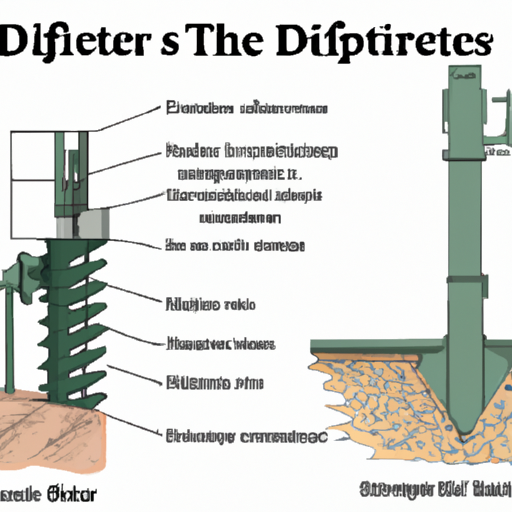The Significance and Functionality of Desilters in Drilling Rigs

Introduction (approx. 100 words):
Drilling rigs play a crucial role in the extraction of natural resources from beneath the Earth's surface. These rigs are equipped with various components and systems to ensure efficient and uninterrupted drilling operations. One such vital component is the desilter. In this article, we will delve into the significance and functionality of desilters in drilling rigs, exploring their role in maintaining drilling fluid cleanliness, enhancing drilling performance, and mitigating environmental impacts.
1. Understanding Drilling Fluids and Their Importance (approx. 200 words):
Drilling fluids, commonly known as drilling muds, are essential for drilling operations. They serve multiple purposes, including cooling and lubricating the drill bit, carrying drill cuttings to the surface, and providing hydrostatic pressure to prevent wellbore collapse. Drilling fluids also aid in controlling formation pressure, ensuring stability of the wellbore, and facilitating successful casing and cementing operations.
2. The Role of Desilters in Drilling Rigs (approx. 200 words):
Desilters are vital mechanical devices installed in drilling rigs to remove fine solids and silt particles from the drilling mud. These devices typically consist of hydrocyclones, which use centrifugal force to separate solids from the liquid phase. Desilters are positioned downstream from the shale shaker and desanders, further refining the drilling fluid to achieve optimum cleanliness.
The primary function of desilters is to remove solids with particle sizes ranging from 15 to 44 microns. By eliminating these fine particles, desilters help maintain the drilling fluid's properties within specified limits, ensuring efficient drilling operations. The removal of fine solids also prevents the accumulation of these particles in the wellbore, minimizing the risk of wellbore instability and potential damage to the drilling equipment.

3. Enhancing Drilling Performance with Desilters (approx. 300 words):
Efficient drilling operations are crucial for maximizing productivity and minimizing costs. Desilters play a pivotal role in enhancing drilling performance in several ways:
a) Improved Rate of Penetration (ROP): The presence of fine solids in the drilling mud can reduce the ROP by increasing friction and drag on the drill bit. Desilters help maintain a clean drilling fluid by removing these particles, reducing the resistance faced by the drill bit and enhancing the ROP.
b) Enhanced Drilling Fluid Properties: Desilters aid in maintaining the drilling fluid's density, viscosity, and gel strength within optimal ranges, ensuring smooth and efficient drilling operations. By removing fine solids, desilters prevent the degradation of drilling fluid properties, enhancing overall drilling performance.
c) Extended Drill Bit Life: Fine solids can cause excessive wear and tear on the drill bit, reducing its lifespan and increasing operational costs. Desilters prevent the accumulation of these particles, thereby extending the drill bit's life and reducing the frequency of replacement.
d) Minimized Risks of Stuck Pipe and Differential Sticking: The presence of fine solids can lead to pipe sticking issues, resulting in costly downtime and potential drilling complications. Desilters help mitigate these risks by removing the fine solids, reducing the chances of pipe sticking and differential sticking.
4. Environmental Impacts and Desilters (approx. 200 words):
Drilling operations can have environmental consequences, and the proper functioning of desilters plays a significant role in minimizing these impacts. By effectively removing fine solids from the drilling mud, desilters prevent the discharge of contaminated drilling fluids back into the environment. This reduces the risk of soil and water pollution, protecting surrounding ecosystems.
Furthermore, desilters aid in the recovery and reuse of drilling fluids, reducing the overall consumption of fresh water and minimizing the generation of waste. Proper management of drilling fluids through desilters ensures compliance with environmental regulations and promotes sustainable drilling practices.
Conclusion (approx. 100 words):
Desilters are indispensable components of drilling rigs, ensuring the cleanliness and efficiency of drilling fluid. By removing fine solids and silt particles, desilters enhance drilling performance, minimize downtime, and reduce operational costs. Additionally, these devices play a crucial role in mitigating the environmental impacts of drilling operations, promoting eco-friendly practices. As drilling technology advances, the continuous improvement and optimization of desilters will remain essential for sustainable and responsible drilling practices.




 8613371530291
8613371530291